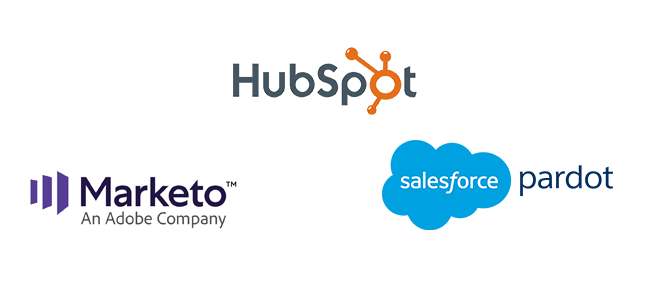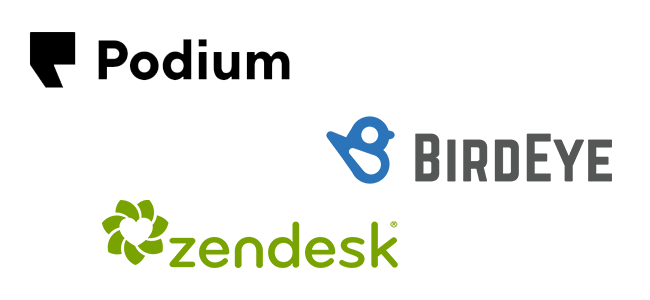
It's rare to find a business without an online presence, today. Websites, email, direct texting, social media, and other forms of online communication help attract and delight customers. Convenience is key and the days of current and prospective customers calling a business by phone is quickly fading.
Customers now want interactions that are immediate and dare I say... more passive. When you call a business via the phone, so much can happen that tarnishes the customer experience.
I recently called a well-known home improvement store to receive an item for pick-up when I arrived at their designated parking spot. The first call attempt resulted in a person answering the phone but not saying anything to me.
After a moment of awkwardly listening to background noise and feedback directly into my ear, the phone disconnected. I called back and got a person to actually speak on the phone the second time. If that had been my experience with a business when I was attempting to make a purchase, I probably wouldn't have been so persistent.
Your customers are the same way.
Integrating online chat into your sales, marketing, or service efforts eliminates the problems that occurred in my story. But it also avoids situations where thick accents make it difficult to understand someone (customer or employee), and it frees up a customer to be able to continue other tasks (because we love to stay busy) while being assisted.
So, what chat options are available to businesses seeking to add a chat feature to their communications arsenal?
Chat Integration Options
There are several chat integration options available to businesses in three main categories:
Phone System Chat Integrations

A phone system chat integration is supported by a business phone system provider and can provide complete chat features as part of a full contact center solution.
Contact center is a management solution that exists to support call centers/helpdesks/sales inquiries/etc. and help them work more efficiently. When it comes to the previously mentioned forms of customer service and sales, chat has become an integral part of the solution. As a result, business phone system providers like Intermedia™ have added chat to their suite of features included in their contact center solution.
As a provider of such solutions, Standard Office Systems discovered that many large businesses have been spending 30% more on their contact center solutions, without the additional features that Intermedia's and other providers' solutions offer.
Simply put, many business owners aren't aware that more effective solutions exist and integrating with a business phone system contact center (that includes chat integration) can be done for as little as $35 per user per month.
Marketing Platform Chat Integrations
 One of the most common solutions for large and smaller companies alike is to leverage chat integration with their marketing platform. This is a great option for businesses who already use a marketing platform to automate digital marketing and sales processes.
One of the most common solutions for large and smaller companies alike is to leverage chat integration with their marketing platform. This is a great option for businesses who already use a marketing platform to automate digital marketing and sales processes.
Marketo, HubSpot, and Pardot all have similar chat solutions that can be integrated. But at $22,000+ per year, or $60 per day (on the low side of the cost spectrum), it can become too costly to implement if a company is just looking to add chat.
Still, there are a lot of advantages to integrating a full marketing platform with chat into your online efforts. It provides a great deal of flexibility to a business that wishes to keep most of its marketing efforts in-house, including using the platform's CMS to edit and maintain the business' website and overall online presence.
One-off/Solo Chat Integrations

Solo chat integrations, depending on the scale of use, are often the cheapest form of chat integration. It is certainly the most direct form for businesses seeking to only add chat to their marketing/sales/service mix.
Popular products for chat-only integrations are: Zendesk, Birdeye, and Podium starting at $29.99 per user per month, but free/lite versions do exist, as well.
By paying for one of the services above (or another), businesses can expect a product that focuses predominantly - and sometimes exclusively - on live chat features. This means that you can expect a product that will do everything you need it to do to help you reach your prospective customers and delight the ones you already have.
Whether or not a one-off chat product is right for you, though, will depend on scale. $30 per user per month isn't bad as long as you aren't a very large business in need of several users.
If you choose the free route, there are limitations on what can be implemented or they are tied to something else. For instance, with HubSpot, the CRM is given to customers for free and includes up to 1,000 contacts. The chat is also "free," but each person who chats and inputs an email during a chat is added to the CRM.
So, that 1,000 contacts turns into 5,000 pretty quickly and the costs start to add up.
What Chat Solution is Right for You Business?
The live chat solution that is right for your business is more complicated than pointing to a singular product. There is no right chat solution for every business (though some chat providers will happily disagree).
To decide on the chat solution that is right for you, make a list of features each chat solution provides. Some chat solutions can integrate with a CRMs or other products you may already be using. If you have a phone system but need something slightly more robust, there may be savings by replacing your phone system and/or adding a contact center product.
The right chat solution will be the one that gives you what you need without stretching the budget too thin.
That last statement was sort of a "duh-statement," but it needed to be said. Don't just look at how much a chat solution costs. Look at what it can provide and you may find that other solutions you use can be eliminated, allowing you to ultimately come out ahead.
Posted by Chris Gaines

Chris Gaines has been with Standard Office Systems as the Director of Managed Services for the past three years and has over 25 years of experience as a Network Administrator in the office technology industry. He has a passion for helping small businesses discover the best technology solutions for their specific needs.
